The battle of Karbala is the most tragic event in the history of the Islamic world. The battle in which the third Shia Imam Hussein ibn Ali (AS) sacrificed his life and all his belongings, including his family and dearest friends, to stand against oppression and injustice.
Now, after nearly 1400 years, not only Shia and Sunni Muslims but all pure-hearted individuals still appreciate and mark what Imam Hussein (AS) did in Karbala.
One of the ways of marking Imam Hussein's memory and showing respect to him among Shias is to pay a visit (ziyarat) to his holy shrine which is located in Iraq's Karbala.
Generally in Islam, ziyara or ziyarat is a form of pilgrimage to sites associated with Prophet Muhammad (PBUH), his family members and descendants, his companions, and other venerated figures in Islam such as the prophets and Islamic scholars.
The greatest and biggest form of ziyarat is held 40 days after the martyrdom anniversary of Imam Hussein (AS) in Iraq which is known as the Arbaeen Pilgrimage or Arbaeen Walk.
Arbaeen pilgrims start their journey by visiting the shrine of Imam Ali (AS), the first Shia Imam and the father of Imam Hussein (AS), in Najaf and then they walk 50 miles toward the city of Karbala, where was the scene of Karbala Battle and the shrine of Imam Hussein and his beloved brother Hazrat Abbas (AS) are located.
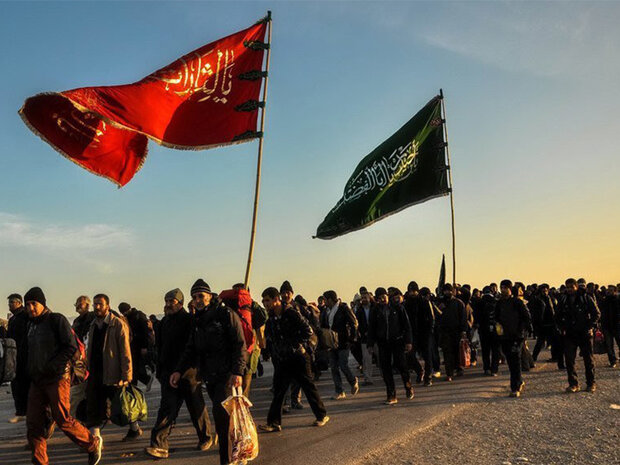
The philosophy of Arbaeen walk:
The Arabic word for the number 40 is Arbaeen and signifies the end of a 40-day mourning period for Hussein (AS) and others martyred in the Karbala desert.
According to most Islamic schools of law, a person who dies is mourned for 40 days by loved ones.
The aim of the Arbaeen pilgrimage is not just about visiting the shrine of Imam Hussein (AS). The ziyarat symbolizes the commitment to the Imam's beliefs and manner of living. Arbaeen pilgrims renew their allegiance with Imam Hussein (AS) as they visit his shrine.
They also chant "Labaik ya Hussain" in front of the shrine of the Imam. The expression is generally associated with the commemorations of Muharram. It means, "I am answering you, O Hussain!"
The reason for chanting this slogan is Imam Hussein's call for help in the last seconds of his life. When all his companions were martyred and he, himself, was suffering from severe injuries, he shouted, "Isn't there anyone to help me?” Imam wanted to make the Yazidi Army aware of their mistake by saying this sentence.
Now today, the pilgrims of Karbala chant "Labaik ya Hussain" to show that although they were not present in the Battle of Karbala, now they are ready to help Imam by keeping his memory alive and continuing his path.
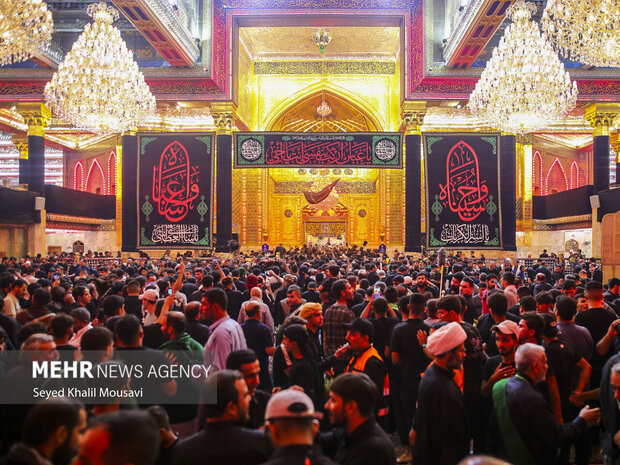
The importance of Karbala Battle and loving Imam Hussein (AS):
"Think not of those who are slain in Allah’s way as dead. Nay, they live, finding their sustenance in the Presence of their Lord; they rejoice in the Bounty provided by Allah; and with regard to those left behind, who have not yet joined them (in their bliss), they (the martyrs) glory in the fact that on them is no fear, nor have they cause to grieve. They glory in the grace of Allah and the bounty in the fact that Allah suffereth not the reward of the faithful to be lost (in the least)," these are the words of God in Surah Al-Imran Ayat 169.
Sacrifice is an important concept in Islam that is categorized into different levels and martyrdom is considered one of their greatest. The sacrifice is to symbolize submission to the will of God. Fasting for 30 days during the month of Ramadan can be an example of sacrifice in Islam. It is not eating or drinking for a certain period of time in obeying the order of Allah.
One of the most beautiful examples we have of sacrifice is that of Imam Hussein, the Lord of Martyrs. In the desert of Karbala, Imam Hussein’s small party, which included his relatives and a few close companions, was surrounded by the forces of Yazid which comprised 40,000 soldiers. They cut off the water to the Imam’s camp on the seventh day of Muharram and tortured them with thirst and hunger.
Imam Hussain (AS) believed that allegiance to Yazid is not in the interest of Islam and if the Muslim nation suffers from a person like Yazid, there will be no Islam. Therefore, he decided not to accept allegiance to Yazid under any circumstances.
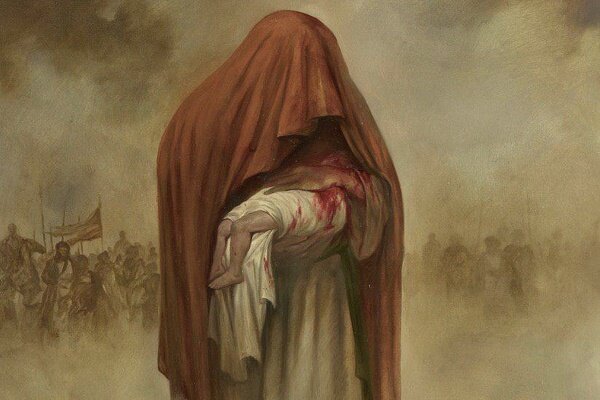
On the day of Ashura, the tenth day of the month of Muharram, Imam Hussein sent out his followers, one by one, to fight, kill, and die for Allah. Lastly, the Imam came out asking for water for his little baby, ‘Ali al-Asghar, who was dying of thirst. The forces of the enemy quenched the thirst of the infant with a deadly poisoned arrow that pinned the baby’s neck to the Imam’s arm. At last, when the six-month-old baby was martyred, Hussein (AS) made a prayer, went out into the battlefield, fought bravely, and was martyred.
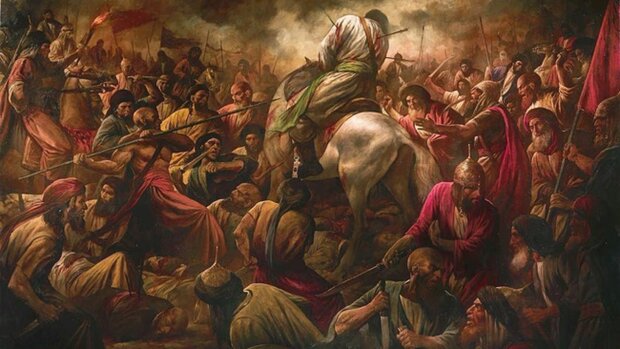
Imam Hussein's martyrdom caused an intellectual revolution and a revival of Islam. Through Imam Hussein’s sacrifice, lots of people came to realize that the Islam of the Umayyad Caliphs was not the true Islam and many returned to the path of the Prophet. His uprising gave strength to many and resulted in many following his example and leading bloody rebellions against oppressors and tyrants.
To fully understand the position of Imam Hussein (AS) in Islam, we have to pay attention to a hadith from Prophet Muhammad (PBUH) which reads, “Hussein is a part of me, and I am a part of Hussein. Allah loves those who love him. He who loves Hussein loves me, and he who hates Husein hates me. I am at peace with whosoever is at peace with Hussein, and I am at war with whoever is at war with him.”
The hadith also indicates that each and every pure heart carries the love of Imam Hussein (AS) in itself. This is also why mourners of Hussein (AS) cry for him in mourning ceremonies. This is because of the pain they feel as the Prophet must have felt while seeing his beloved grandson being martyred. It increases their love for him and for Allah while intensifying their hatred toward injustice and the need to fight against it.
Manifestation of Imam Hussein love in Arbaeen Walk:
Iraq has a hot, dry climate characterized by long, hot, dry summers and short, cool winters. But Arbaeen pilgrims will hold the walk in any weather conditions. All people from any range of age, with any physical and health situations, can be seen in Arbaeen Walk. This issue has no other justification except for expressing love and devotion toward Imam Hussein (AS).
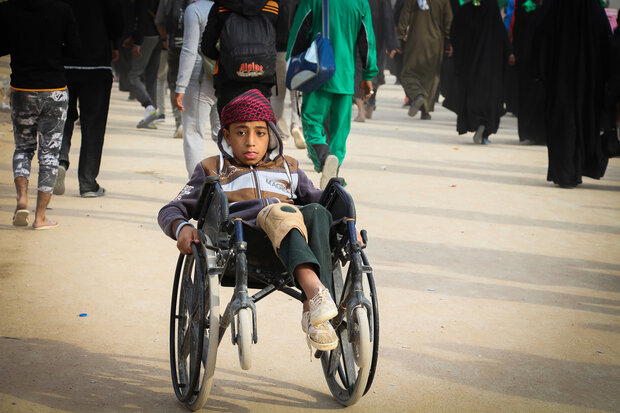
Although the distance is long and the road passes through the desert, Hussein's visitors show their love toward him by attending the walk with their children and older members of their families.
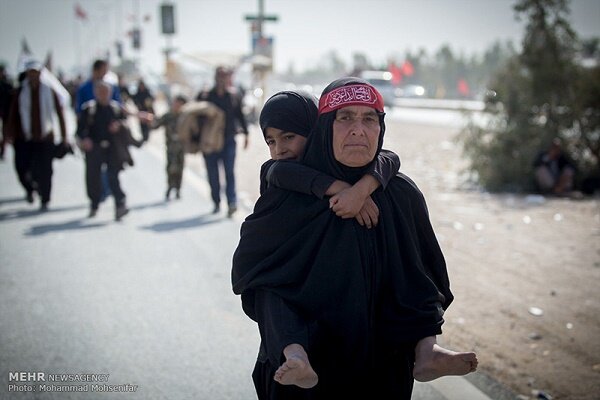
 People of different nations who participate in the Arbaeen pilgrimage also set up Mawkibs (voluntarily prepared stations) to provide the pilgrims with different kinds of services. Some Mawkibs offer the pilgrims places to rest, while several others provide them with food or medical services. All these services are totally free and the pilgrims won't pay a penny to use the Mawkibs.
People of different nations who participate in the Arbaeen pilgrimage also set up Mawkibs (voluntarily prepared stations) to provide the pilgrims with different kinds of services. Some Mawkibs offer the pilgrims places to rest, while several others provide them with food or medical services. All these services are totally free and the pilgrims won't pay a penny to use the Mawkibs.
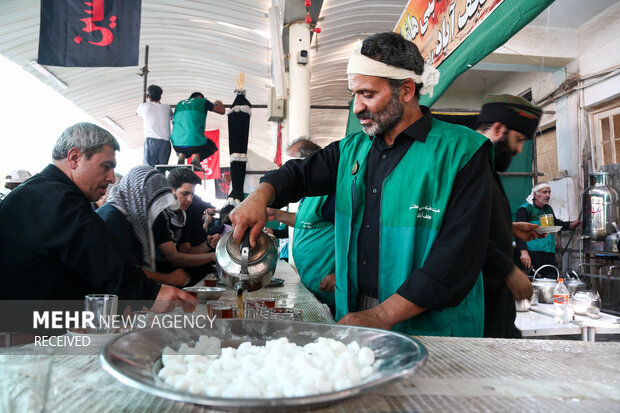
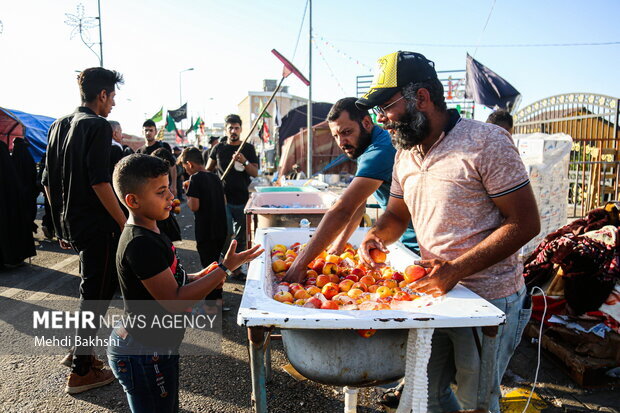
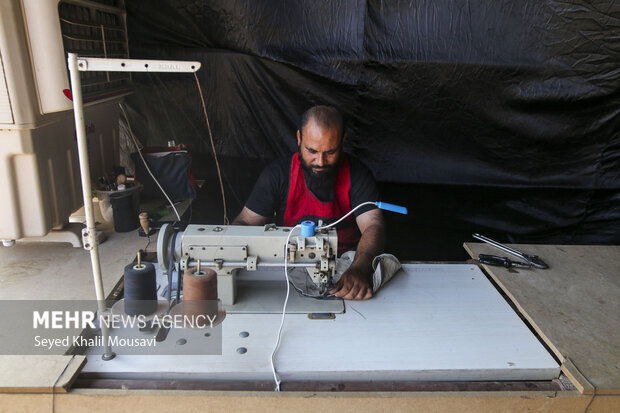
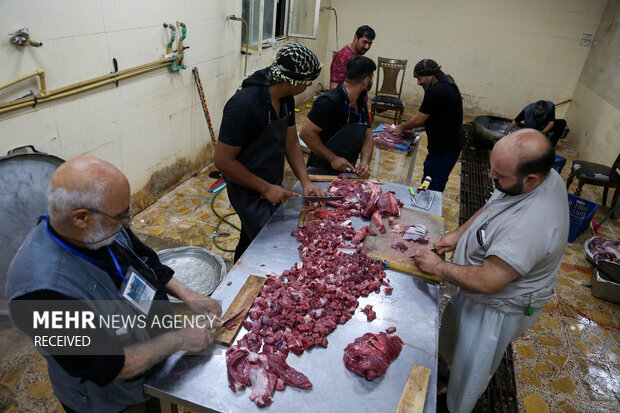
Everyone serves Hussein's (AS) visitors with all they belong, whether it's a little or much. Some people, who do not own enough assets for setting up a Mawkib, will provide the pilgrims with massaging services or invite them to rest at their houses.
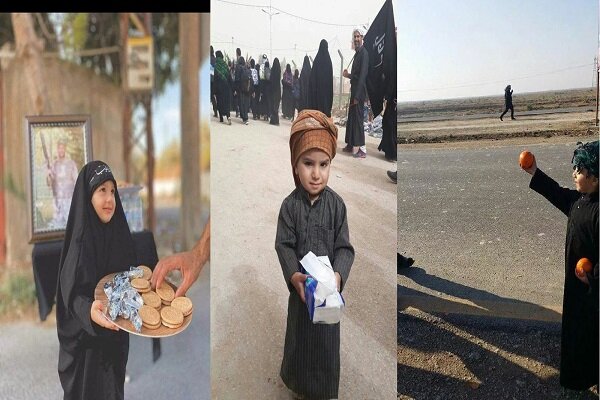
The blowing footage shows several Mawkibs belonging to Shia and Sunni Muslim which provide services to the pilgrims at the Mehran border:
The majority of Arbaeen pilgrimage's Mawkibs are hosted by Iraqis and Iranians but this even goes beyond religious and national boundaries and people of other religions and nations also help to hold the Arbaeen Walk as glorious as possible.
The below video shows a group of Chinese residing in Iraq that created a Mawkib on a road leading to holy Karbala:
All of these significant acts of pure kindness make the Arbaeen Pilgrimage an unforgettable journey.
Imam Hussein; a hero of all nations:

People of all colors, castes, creeds, ethnicities, and beliefs will attend the Arbaeen Pilgrimage. The event is not dedicated only to a limited number of people with certain beliefs. Arbaeen Pilgrimage presents a roadmap for better living for all humankind.
During the trip, the visitors to Imam Hussein's shrine give up all of their material possessions and show brotherhood and empathy to each other. Everyone on the pilgrimage is trying to give to others instead of thinking of achieving something, hoping that they could be more like their martyred Imam by doing good deeds.
The pilgrimage, as the pilgrims say, is a unique opportunity for promoting sociopolitical awareness and knowledge. A significant amount of information is shared during the Arbaeen in a variety of political, cultural, and social spheres, the majority of which is religious knowledge, which results in a growth in the knowledge and understanding of the pilgrims.
Imam Hussein (AS) brings the international community closer and unites them in a peaceful manner during the Arbaeen Walk. Millions of people from across the globe come to the dry deserts of Iraq, holding their countries' flags in their hands, and walk 50 miles between the cities of Najaf to Karbala to show that Imam Hussein is not a role model only for Muslims or the Shia community.
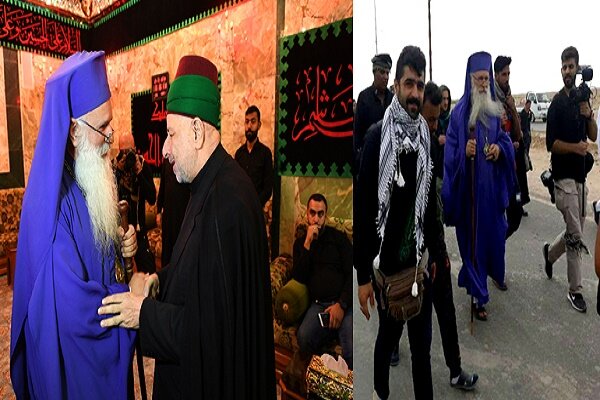
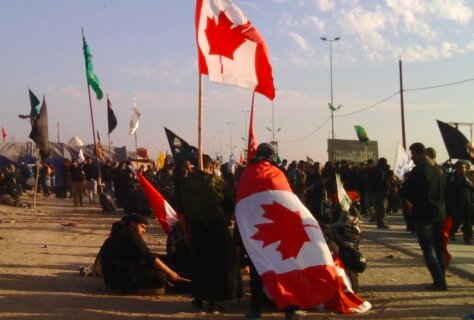
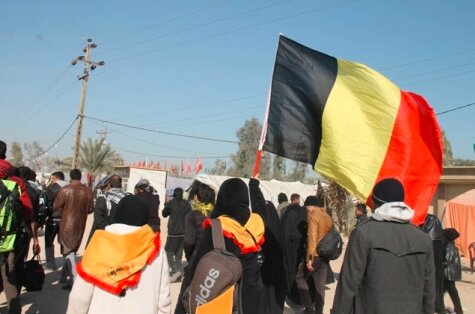
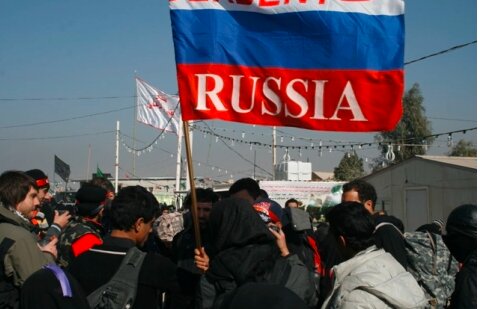
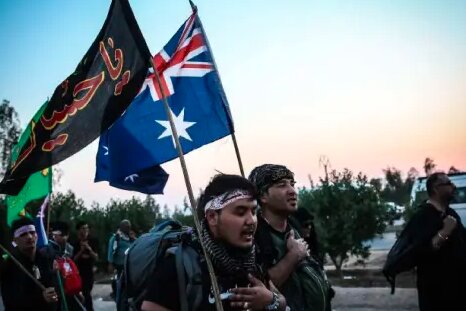
Imam Hussein's story affects the souls, and the hearts experience a massive evolution in his mourning ceremonies. The following video is published by British Photojournalist Emily Garthwaite while attending a mourning ceremony in Imam Hussein's holy shrine on Arbaeen day. She described her journey as the most overwhelming experience of her life.
Arriving in Karbala:
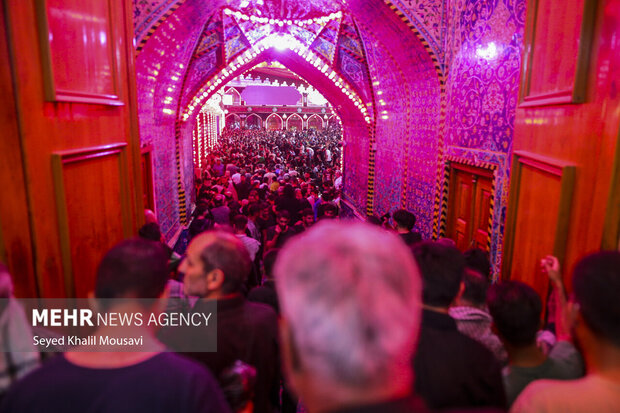
Perhaps the most relieving moment for the tired pilgrims who have spent days walking in deserts is arriving at the holy city of Karbala and seeing the golden domes of the shrines of Imam Hussein (AS) and Hazrat Abbas (AS).
The pilgrims do certain rituals in Karbala to mark Arbaeen Day. Attending the mourning ceremonies in the shrine of Imam Hussein (AS) or in Bayn al-Haramayn (the area between the Imam Hussein Shrine and Hazrat Abbas Shrine) and mourning in groups is one of the most common rituals on the day of Arbaeen.
Praying, reciting duas and Quran, and doing benevolence are other Arbaeen rituals.
Experiencing Arbaeen Pilgrimage deepens spirituality. Islamic teachings place great value on collective rituals and worship as a way of achieving spirituality. Worshipping brings spirituality, but the worshipping that takes place collectively leads to spiritual synergy.
Compiled by Mohaddeseh Pakravan


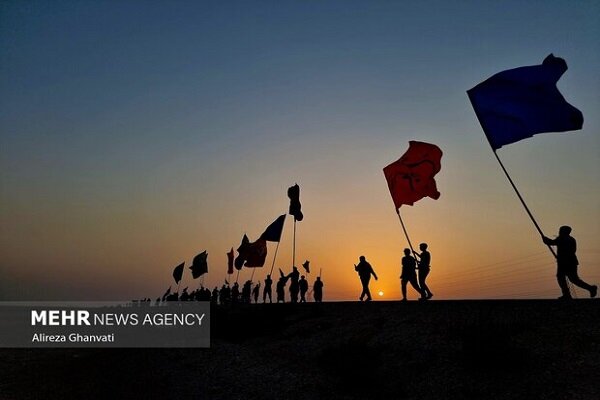





















Your Comment